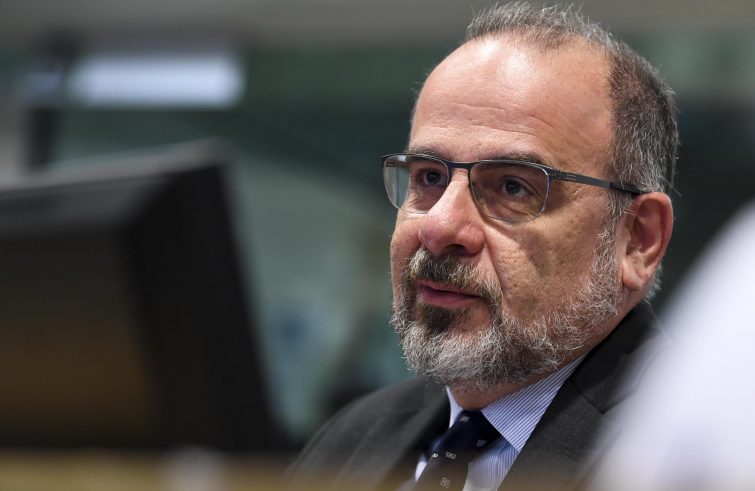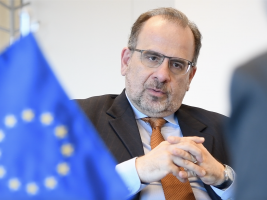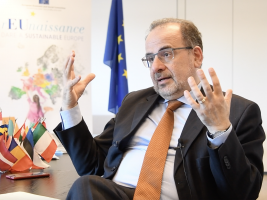
Two and a half years as President of the European Economic and Social Committee are few, especially in this age of dramatic transformations that evidenced the extent to which our democracies, our societies and our planet are fragile, and the extent to which such transformations can become our daily routine.
In April 2018 I took over the presidency of the EESC in the belief that we needed to rediscover the humanistic spirit of the Renaissance in order to hasten our progress towards a sustainable Europe. In the wake of Brexit and ahead of the European elections I understood that civil society had a crucial role to play in guiding European economy and societies towards more sustainable and intelligent paradigms. Upon the conclusion of my term of office it’s safe to say that
Europe has once again shown its resilience.
In last year’s European elections nationalists and Eurosceptic groups were defeated, and the way in which Europe responded to the Covid-19 pandemic undoubtedly dealt a severe blow to their narrative of falsehoods.
The EU has taken unprecedented measures, and over the course of just a few months it shattered hitherto unscathed taboos, protecting citizens and communities and investing in a solid strategy for our future, with the broadest consensus ever.
In the past six months Europeans gave concrete evidence of the intensity of such consensus. We have shown just how much can be achieved if we trust each other, if we trust our European institutions.
To date, the set of measures already in place exceeds €5 trillion, a sum five times larger than today’s value of the Marshall Plan. Europe is our strength.
I firmly believe that the three priorities of my presidency, namely sustainable development, peace and culture, remain at the heart of Europe’s Renaissance. The pandemic was a wake-up call, but climate change and the intensification of extreme weather events were taking place already.
The Recovery Plan for Europe is a unique opportunity to avert apocalyptic scenarios and transform Europe into a global beacon of sustainability. #NextGenerationEu is a major opportunity to deliver planned transformations that are not shaped by calamities or by the intentions of other countries. It’s our window of opportunity to revitalize an economy based on humanity and solidarity.
In this respect, civil society can play a leading role. We were the first among EU institutions to pay heed to Greta Thunberg and to the young climate activists taking to the streets, requesting immediate action for change.
We at EESC were the first to disseminate circular economy and sustainable development models. Our organizations, alongside local governments, will continue being at the front line with regard to the implementation of the post-pandemic recovery plan, making every effort to prevent havoc.
Under my presidency we fostered a dynamic and active civil society asking to be actively involved, over and above the mandate stipulated by the Treaty.
We are now on the eve of the Conference on the future of Europe: an opportunity to work together towards a new Europe.
Seventy years ago, in his Declaration, Robert Schuman affirmed that world peace cannot be safeguarded without the making of creative efforts proportionate to the dangers which threaten it. Never in the course of history and nowhere in the world have women and men experienced such a long-lasting period of peace, stability and economic prosperity; never before have freedoms and rights been guaranteed as they are in Europe today. However, as we well know, we cannot rest on our laurels.
Europe has been put to the test by numerous crises, this time more than ever before.
I believe we have enough energy and creativity to come out of this crisis once again stronger, all of us together.
Now is the time to rise to the challenge once again, with greater willingness to change and putting forward practical proposals on the reconstruction of Europe “through concrete achievements which first create a de facto solidarity,” as Schuman said.
The rEUnaissance will be accomplished by men and women who have the courage to innovate, to dream, to engage, to risk, to cultivate feelings of collective responsibility. This requires emotional intelligence coupled with passionate and enlightened realism. Yes, we can succeed.
- foto SIR/Marco Calvarese
- foto SIR/Marco Calvarese















